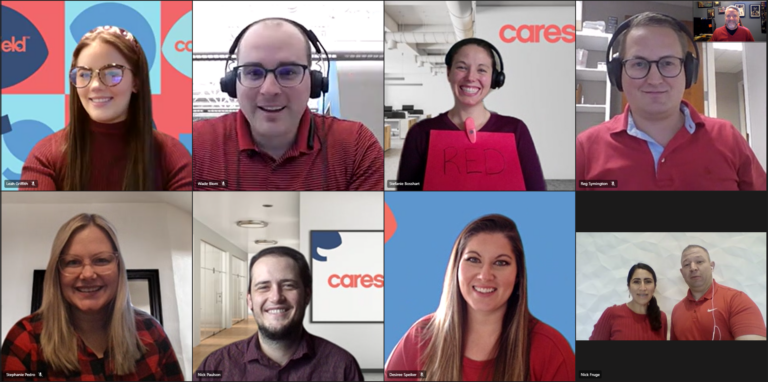COVID-19 exposed the weak links and gaps in the healthcare supply chain across the globe. Lockdowns, mass outbreaks, shortages of materials, and shipping delays caused strife in many hospitals and facilities that were trying to meet the needs of their patients.
Now, as the pandemic has slowed down, supply chain resilience requires a review of the weak links in the system in order to avoid similar catastrophes in the future. One of the best ways to create a stronger system is by building a relationship with suppliers that benefits you and your facility. In the introductory phase, asking questions of a potential supplier can help establish whether or not they are trustworthy or reliable.
Below are some questions for how to determine whether or not a supplier will make a good partner in your healthcare supply chain.

Do you manufacture your items or source them?
Warehousing and manufacturing can make a strong or weak supplier. Items sourced from other warehouses or factories may be a potential weak spot for your supply chain. As a precaution, those warehouses or factories will require more research from your management team. Then, your facility can prepare for unexpected crises that may arise. Is the supplier a sole-source supplier? If not, you may need to make sure that you have another supplier for the same items in that case.
Where do you manufacture your items?
Above all, items manufactured in the U.S. comprise a lower risk than items manufactured elsewhere. Other countries are often subject to export bans, shipping delays, or natural disasters that your team may not know about. Sometimes political unrest (like in Myanmar) or public health crises (like in India) may change a factory’s ability to manufacture quality goods on time. Consequently, supply chain continuity is often based on location.
What is your strategy to mitigate supply chain risk while optimizing for costs? (demand planning)
The supplier should be aware of weak links in the supply chain and have a plan for how to optimize both costs and production. Oftentimes, products that rely on raw materials may experience shortages and should be prioritized. In order to not overcharge the client, more expensive products should be made on an as-needed basis. Demand planning plays an important role in supply chain resilience.
Do you have backup suppliers? If one country or one raw material supplier goes down, can you continue manufacturing?
Sole-source suppliers pose a risk to your carefully planned healthcare supply chain. Sometimes, supply chains may suffer from a shortage of raw materials. Is your supplier prepared for a shortage? Is there a back-up plan to bring in raw materials? Even if a supplier has a back-up plan to adapt to a shortage, ask if the price will change for the goods.
Will I have access to all the information?
First off, having your own plan for what to do in case a supplier fails is crucial to the health of your facility and your patients. Your inventory management team can create this plan through access to all of the information the supplier has about the creation, shipping, and pricing of the products.
Do you hold inventory of your items? If so, where?
Items stored in the United States are less likely to arrive late to your facility. Oftentimes, if stored in the same company, flexible shipping options are available. Inventory management can rely on better shipping times and fewer holds.
Do you have a quality management system?
During times of instability or material shortage, creating a quality product becomes the most important priority. As a safeguard, your supplier probably has a system in place that allows for little to no material waste and high-quality product, even in a shortage.
Are you contracted with any GPOs?
GPOs, or group purchasing organizations, work with hospitals and healthcare facilities to buy in bulk from suppliers or vendors. These organizations save your facility money in the long run and can provide a discount on materials.
Read more about protecting your supply chain with our blog post: Where Should You Buy for Your Supply Chain?
Request a meeting with a Caresfield Representative
Resources
https://cdn2.hubspot.net/hubfs/6349681/Q120%20Campaign%20Content/
Overhaul_Visibility%20Solution%20Checklist.pdf?
utm_campaign=Q120%20Media%20Campaign&utm_medium=email
&_hsmi=102565856&_hsenc=p2ANqtz-8bWfCzOo881ghw_MK5Hcuwd7R
QweI5Kait0eDCofFRP1bG3PeQsksbs5YMtNqE-4kbGxQPWPWa_YxIkkfGvPtcjPGt7zoG0BT0gkmflzZQ8JzaXFA
&utm_content=102565856&utm_source=hs_automation
https://home.kpmg/xx/en/home/insights/2020/04/ten-key-questions-to-ask-suppliers.html
https://www.netsuite.com/portal/business-benchmark-brainyard/industries/articles/
manufacturing/supply-chain-resilience.shtml
https://www.industryweek.com/supply-chain/article/21151794/
how-covid19-has-changed-the-healthcare-supply-chain
https://spendmatters.com/2020/06/22/modernizing-the-healthcare-supply-chain-in-the-coronavirus-era/
https://www.mckinsey.com/~/media/mckinsey/industries/healthcare%20systems%20and%20services/
our%20insights/strengthening%20health%20cares%20supply%20chain%20a%20five%20step%20plan/
building%20new%20strengths%20in%20the%20health%20care%20supply%20chain.ashx



